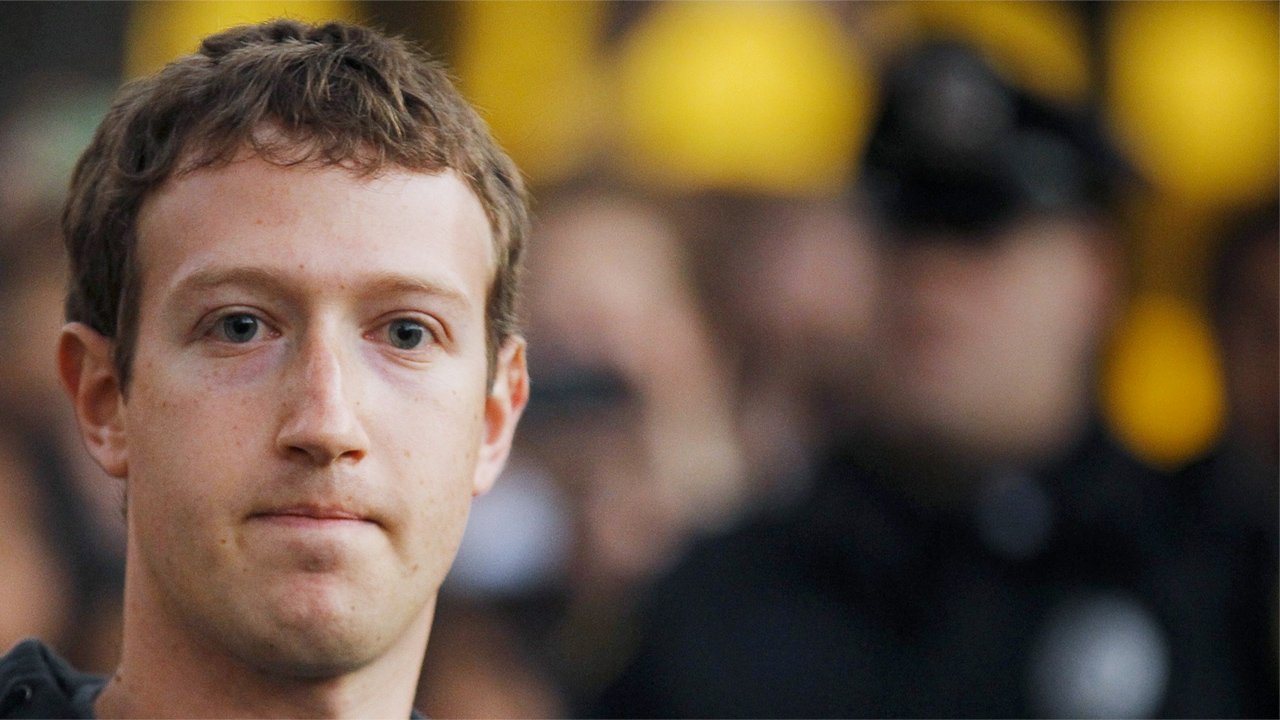Today is the first day of Facebook CEO Mark Zuckerberg’s hearing in regards to the Cambridge Analytica incident.
Senator Chuck Grassley began the hearing outlining the itinerary of the event, explicitly stating the time restraint due to the number of people set to question the Facebook CEO.
Chairman John Thune began talking about Facebook’s userbase, stating the issue at hand with Cambridge Analytica and their quiz that breached the user data without permission. He went to state that the problem seems to stem from the exploitation of already existing, and presumably safe, features available on Facebook.
Thune added, “I’m not convinced that Facebook’s users have the information they need to make meaningful choices”.
Senator Dianne Feinstein took the mic to address her issues, specifically bringing up the 2016 Elections. She brought up the fact that Cambridge Analytica worked with internet research groups to choose specific targets during the Trump campaign, relying heavily on the data gleaned from Facebook’s user database which directly contributed in an unfair advantage during the voting period.
Grassley took the mic, acknowledging Zuckerberg’s point regarding the fact that the Cambridge Analytica is still under investigation but that the privacy standards need to be looked at regardless.
Senator Bill Nelson began questioning Zuckerberg, asking him why the affected Facebook users were not notified that their accounts were compromised. Nelson also stated that he felt Zuckerberg is genuine in seeking reform regarding privacy concerns.
Mark Zuckerberg began by talking about how Facebook got to where it currently is. He brought up movements like the #metoo movement and relief efforts for Hurricane Harvey. Zuckerberg then admitted to the prevalence of fake news and privacy concerns, apologizing personally for both, stating, “We didn’t take a broad enough view of our responsibility, and that was a big mistake. And it was my mistake, and I’m sorry. I started Facebook, I run it, and I’m responsible for what happens here.”
Zuckerberg, when questioned further about the incident mentioned that Cambridge Analytica bought the user data from an app developer, which then gave Analytica access to basic public information such as likes, profile pictures, and location. To ensure this doesn’t happen again in the future, Zuckerberg said that Facebook will take stricter looks and ban any app developers that misuse or have unwarranted access to user data.
Grassley began his questioning by asking Zuckerberg if any other instances of unwarranted data access have occurred since 2014. Zuckerberg responded by stating that his team is currently going through the thousands of apps that may or may not have access to personal user data and are using it in a malicious way, or as Zuckerberg put it, for “sketchy things.”
“We’re investigating every single app that had access to a large amount of information in the past. And if we find that someone improperly used data, we’re going to ban them from Facebook and tell everyone affected.”
Zuckerberg iterated his statement by stating that a more fleshed out and detailed legal document regarding privacy will only alienate the userbase as the average user does not read long end-user agreements.
Bill Nelson brought up user-targeted advertising and asked if Facebook will turn this feature off, or perhaps even resort to enforcing a fee for Facebook users wishing to turn off the user-targeted advertising. Zuckerberg emphasized the fact that there would always be a free version of Facebook, but did not address this issue directly, suggesting the idea of a premium version of the currently free service.
When Facebook learned in 2015 about the Cambridge Analytica incident, Zuckerberg said that they explicitly told Analytica to get rid of the data and that they didn’t despite Facebook’s order. Zuckerberg regrets that they shouldn’t have taken their word for it, which is why they didn’t inform the Facebook user base of the breach, as they believed Analytica did not use the data when in-fact, they did.
Senator John Thune talked about Facebook making the same mistakes in the past, which Zuckerberg admitted to. Zuckerberg brought up the fact that a company that began from his college dorm room, expanding to what it is today was impossible to create without a few problems, something that Facebook is continuing to work on and police.
Thune brought up enforcing on what is considered hate speech. Zuckerberg said that back when Facebook got its start, they didn’t have access to AI technology, meaning they had to address each case retroactively. Zuckerberg went on to say that addressing hate speech specifically tough as it’s a very linguistically nuanced form of writing.
He said that he is optimistic that within a span of 5 to 10 years, the AI programming will be able to proactively weed out hate speech related posts.
Senator Dianne Feinstein questioned Zuckerberg about why they didn’t ban Cambridge Analytica to which Zuckerberg restated that they believed Analytica’s word and didn’t follow up, which he regrets, and that they didn’t ban them due to to the fact that they did not actually violate posting rules on the social media platform.
Senator Orinn hatch took the stand and addressed the fact that Mark Zuckerberg promised that Facebook would always be free when he visited the Whitehouse in 2010. Zuckerberg specified that there will always be a free version of Facebook, as their mission statement as a company is to connect the world together.
Zuckerberg also took the opportunity to address how Facebook wants the control to stay with the end-user, and that a special balance must be struck between the trust of end-users and what is shared with advertisers and third-parties, in order for technologies to not follow behind with places like China.
When asked by Senator Maria Cantwell about the prevalence of social media apps such as WhatsApp and its sharing of personal user data, Zuckerberg said he is not familiar enough with third-party applications and its dissemination of end-user data.
Senator Roger Wicker agreed with Zuckerberg’s philosophy of keeping user agreements and privacy policies easy to read in order to ensure accessibility by a wider set of users.
When asked if its true that Facebook collects call and text information, Zuckerberg said that users are required to opt-in with the Facebook messenger app before the service has access to SMS and messenger data.
Senator Patrick Leahy talked about specific Russian propaganda and if Zuckerberg was familiar with it, to which he responded that he himself wasn’t aware of the specific post and that his team was currently investigating the numerous posts that are present within the social media platform.
When asked by Senator Lindsey Graham about a Facebook alternative and if he felt Facebook had a monopoly, Zuckerberg said that he does not feel as though Facebook is a monopoly and instead of a single competitor, Facebook has numerous, such as Google and Microsoft.
Questions regarding the large end-user agreement Facebook imposed on users came up in which Zuckerberg said that he believes that the average user doesn’t take the time to read the full document. He went on to agree with the notion that this needs to be addressed immediately in a more accessible manner.
Senator Amy Klobuchar talked about the advertising aspects of Facebook. Zuckerberg said that Facebook will increase the level of transparency of the advertising by passing new, honest ad bills that deal with the issue.
When asked if the data acquired by Cambridge Analytica is currently being held in Russia, Zuckerberg said that they are currently investigating the situation and are planning on taking legal action if Cambridge Analytica does not disclose all information regarding the user data.
Senator Roy Blunt took the mic next, he brought up Messenger Kids, a specialized messenger app for children, which acts as an extension of their parent’s account. He asked if Zuckerberg felt that if it’s inappropriate for younger kids to have access to a messaging app. Zuckerberg said that the app collects a “minimal amount of information,” but in general, the data is not shared with third-parties and instead, the app is tethered to the parent. When an adolescence reaches the age of 13 they will have to create their own Facebook account and it has no relation to the Kids Messenger app.
Senator John Cornyn brought up Facebook’s mantra or motto: Move Fast and Break Things and if it was partially responsible for the mistakes made regarding the breach of trust. Zuckerberg admitted that they have indeed made mistakes, but the biggest issue lies in the company going from just making tools into actually being responsible for how people use it, policing the software from being taken advantage of by third-parties.
When asked about how personal data is exchanged in relation to advertisers, Zuckerberg mentioned that Facebook personally never shares data directly with advertisers, instead they themselves target special interest groups or niches for the advertisers.
Senator Richard Blumenthal took the mic and talked about how they believe Facebook violated the 2011 FCC decree. Zuckerberg said that this is something that is still being investigated specifically in relation to the Cambridge Analytica incident.
Senator Ted Cruz took the stand and mentioned the intentional removal or lack of promotion of specific politically oriented content, to which Zuckerberg replied he was not familiar with the specific removal of content such as the Chic-Fil-A appreciation page.
After the break, Zuckerberg mentioned that he had learned that, in fact, Cambridge Analytica was an advertiser in 2015, apologizing that they did not immediately ban them.
When asked about banning parent companies or companies associated with malicious or blocked accounts, Zuckerberg stated that they weed all interconnected services that have infringed the terms of service, but not necessarily personal user accounts.
Many of the additional questions asked by the senators to Mark Zuckerberg followed the same level of back and forth. Throughout the hearing, Zuckerberg reiterating the fact that Facebook plans on expanding their privacy policies while maintaining an easy to digest level of understandability, with plans of expanding AI networks that weed out hateful, discriminatory and otherwise harmful posts. Finally, Zuckerberg promises that Facebook will continue in monitoring the social media platform by hiring real-life people native to different parts of the world that can better cater to foreign language posts.
Liked this article and want to read more like it? Check out Zubi Khan’s coverage of BlackBerry targeting Facebook in the Infringement lawsuit
Want to see more videos? Subscribe to our YouTube channel and check out the First 15: Fe, Monster Hunter World Beta: the Insatiable Nergigante, Dissidia Final Fantasy NT, Star Wars Battlefront II, Sonic Forces + Episode Shadow, and Super Mario Odyssey!
Don’t forget to tune in every Friday the Pixels & Ink Podcast to hear the latest news, previews, and in-depth game discussions!
Never miss when new CGM articles go out by following us on Twitter and Facebook!
CGMagazine is Canada’s premiere comics and gaming magazine. Subscribe today to get the best of CGM delivered right to your door! Never miss when a new issue goes live by subscribing to our newsletter! Signing up gives you exclusive entry into our contest pool. Sign up once, you’ll have a chance to win! Sign up today!




